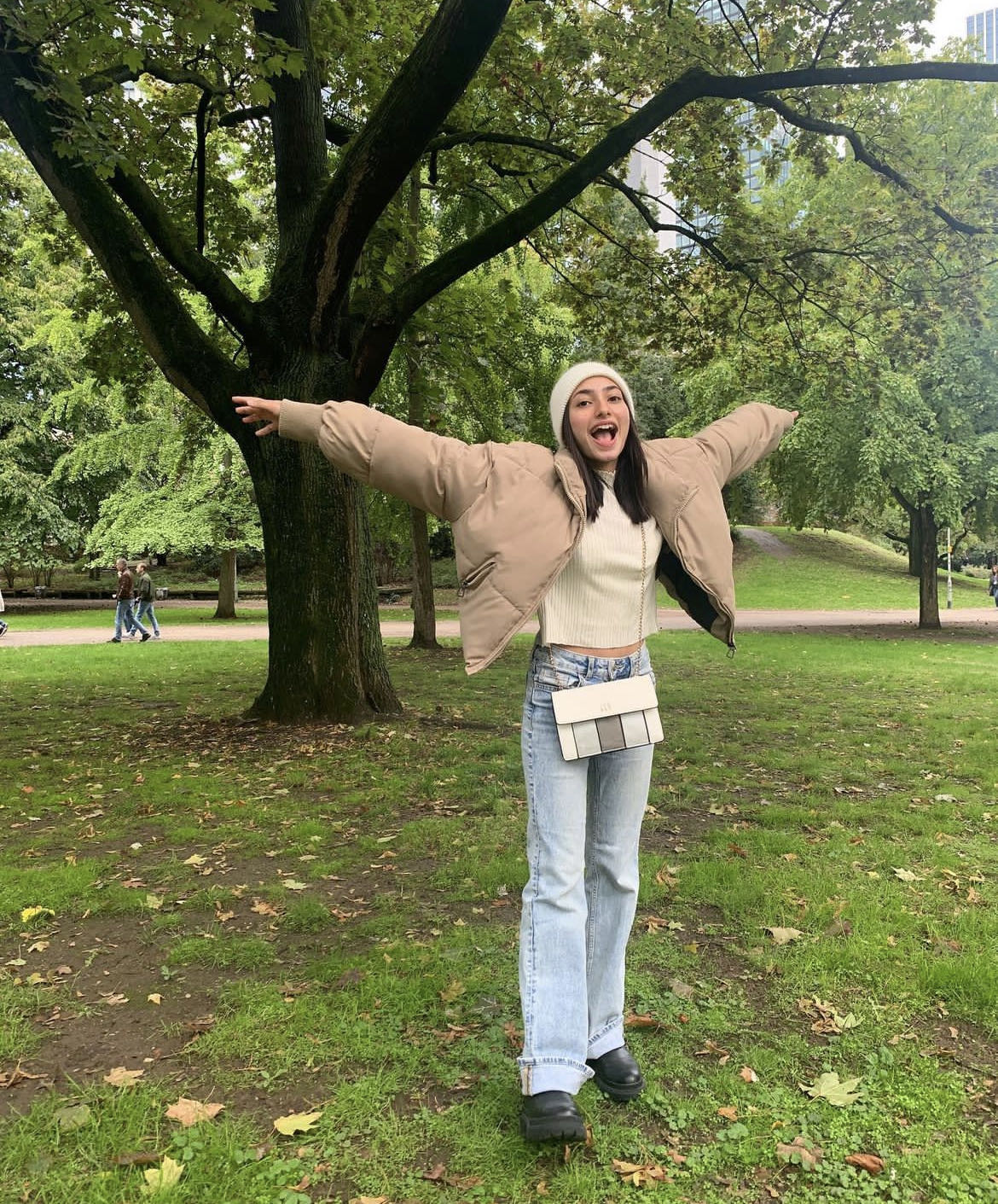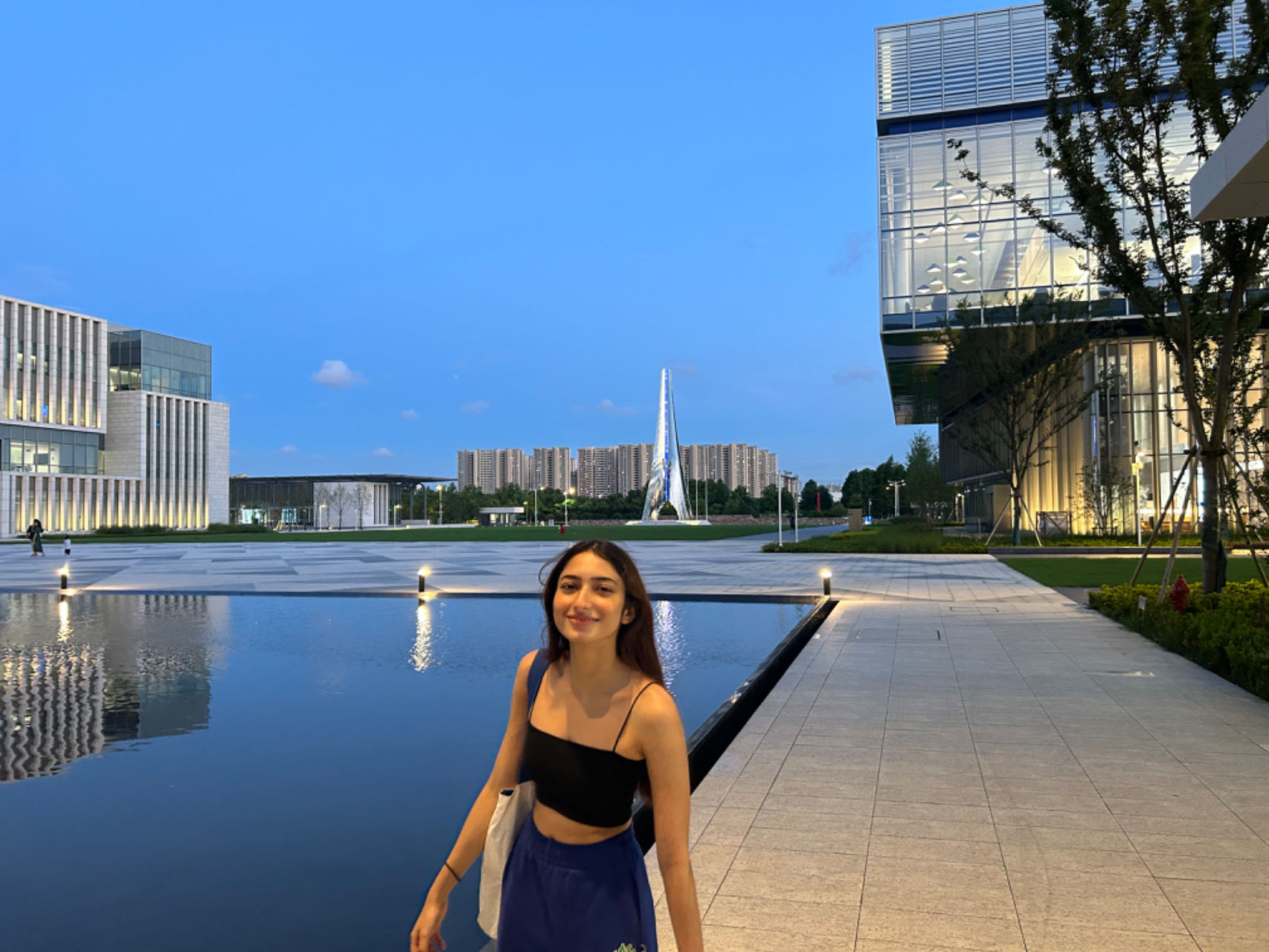When Zoya Abbas made her first social media videos on YouTube and Instagram aged just 13, she had no idea the handful of viewers she received would later explode and launch her into the world of online influencers.
A simple advice video, where she read fictional letters from viewers, it was the product of a bored afternoon and a desire to reach out to the wider world from the small town of Bihar in northern India, where she lived with her parents and older brother.
Now, the Duke Kunshan Class of 2026 undergraduate has an online following numbering hundreds of thousands and an agent who manages her commercial deals.

“There were no nerves when I first started, because I didn’t think anyone would watch the videos I was making,” says Abbas. “People at school didn’t have Instagram, I think there were maybe just four students in my grade who followed me, and YouTube had millions of viewers, so I expected my videos would just disappear into it.”
For the first couple of years on social media her daily videos showing her routines, reading queries from fictitious fans and talking about life, were seen by just a small, though growing, band of followers. However, things changed in the summer of 2018, when she was 15 and her cousin came to stay.
Looking for something to do, the pair decided to make a video copying the clothes and backgrounds of well-known online influencers, which was a trend at the time. For Abbas and her cousin it was just a “cool project” to pass the evening, but when she logged into her account the next day, her followers had exploded to 10,000.
Those numbers began to build further in the coming months, and Abbas found herself becoming not just an accidental influencer, but an incidental businesswoman as well.
After some barter agreements, where companies gave her free products in return for a plug on her channels, she received a commercial sponsorship deal, to make five videos for a make-up brand for around $500.

“It was my first paid deal and I was beyond excited,” she says. But, although she completed her end of the agreement, the company refused to pay.
Despite her first lesson in business being a negative one, Abbas forged ahead, at first continuing to manage her own sponsorship deals, before then working with an ad-hoc agent, and both her online followers and commercial numbers began to climb.
Such was her success that she says she could, “entirely support myself financially at 15.”
Now Abbas is a materials science major at Duke Kunshan, from where she continues to post social media videos to her followers, who number around 200,000 on YouTube and 75,000 on Instagram. The commercial side of it has slowed down to allow more time for study, but she still earns a passive income from advertising placements made by the platforms based on the number of views her videos receive.
For anyone else considering entering the world of online influencing, but not sure how to begin, Abbas has some advice.
“I think you just have to just start actually. This is my best advice,” she says. “This is what works for me and this is what everyone I’ve known who does YouTube says. You have to pick up the camera, learn from your mistakes and just keep going over and over and over, because your first video is not going to be your best video. It’s probably going to be your worst video. You just have to keep going and not care about how many people are watching.”
It is also important to find other things in life to focus on, such as study, or sport, because otherwise you can easily be sucked into the “toxic culture” of social media, she adds.
“Early on I wanted to drop out of school and become a Youtuber, but after a while I realised that in that world your worth becomes so dependent on likes and views,” she says. “You are putting yourself out there, so it can be demoralising when you don’t get views and your manager is telling you this video didn’t do well enough or you have to do this one.”
Looking ahead, Abbas says she is now revaluating her content, “looking at what I truly enjoy making.”
“I will likely continue though. It’s an opportunity. It’s hard to get so many people to care about whatever you’re doing and once you have that you have to respect it. So, I definitely want to continue it for as long as I can,” she says.

